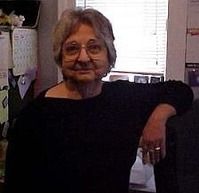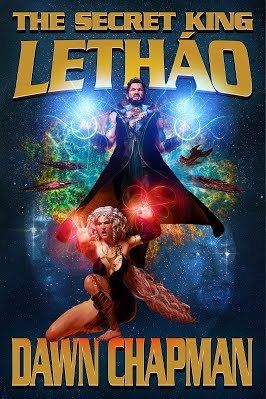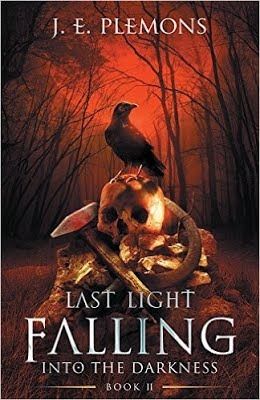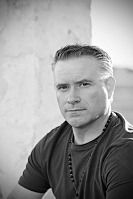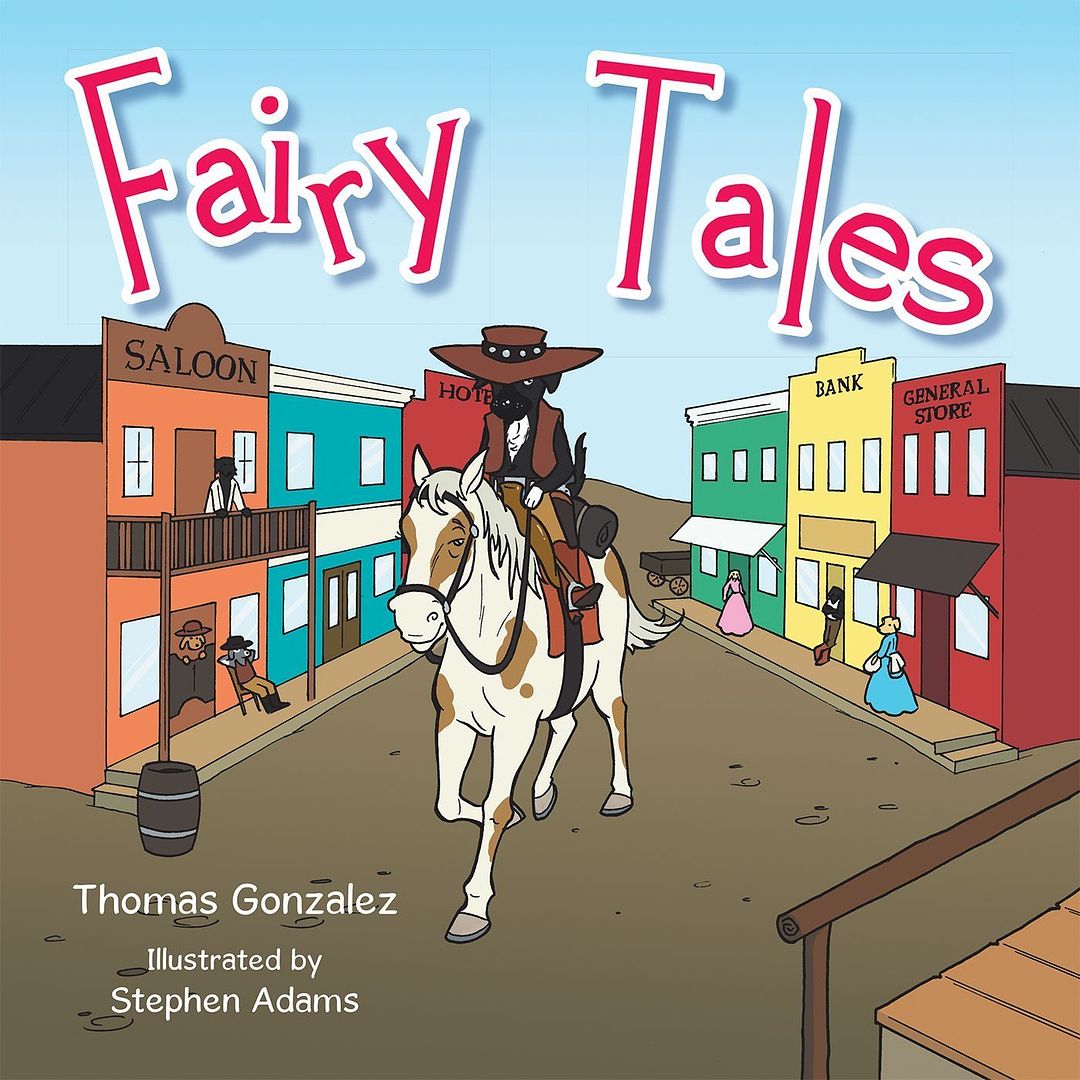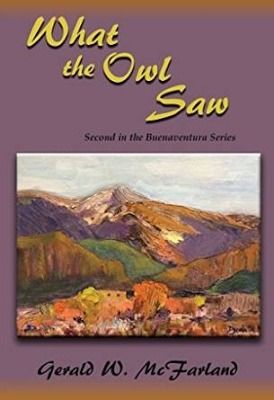
Historical Fiction
Date Published: July 2014

"What the Owl Saw," the second volume in the Buenaventura Series and the sequel to "The Brujo's Way," opens in December 1705 with a terrifying nightmare that fills Don Carlos Buenaventura, a powerful brujo in his sixth life, with dread. Feeling the need to strengthen his brujo powers, always weakened by town life, he rides out into the wild mountain landscapes around Santa Fe in order to practice his sorcerer's technique of transforming himself into hawks and owls. Transformations are exhilarating, but they do not dispel his sense of an impending menace. In addition, as he tells his friend Inez de Recalde, he is impatient to move forward in his quest for wisdom on what he calls the Unknown Way.
Into this picture comes a trio of itinerant entertainers, a magician and two women dancers, who offer an ambiguous promise. Can they lead him to deeper realms of consciousness, or are they agents of his enemy, the evil sorcerer Don Malvolio? The magician and his alluring companions introduce Carlos to dances that transport him into ecstatic mind states, but he remains uncertain about what master they serve. Despite the risk of exposing his secret brujo identity and of being disloyal to his beloved Inez, Carlos allows himself to be drawn ever farther into their web of dark and dangerous enchantments.
EXCERPT
Chapter One
Someone was shaking him and saying, “Alfonso! Alfonso! Wake up!” When he didn’t respond immediately, the voice came again more loudly, “Wake up!”
He opened his eyes to find Pedro Gallegos, his manservant and friend, leaning over him with a concerned look on his face. “What’s the matter?” Pedro asked. “You were shouting, ‘Go away! Leave me alone!’ What set that off?”
Still half-caught in the dream and half-muffled in sleep, he croaked, “A dream, a terrifying dream.”
“Alfonso, in all the time I’ve known you, you’ve reported many vivid dreams and never one that frightened you. What was so terrifying?”
“Wait a minute. I have to sit up.” He struggled to sit upright amid the tangle of bedclothes and restore his mind to his normal consciousness. He took a deep breath. “It started pleasantly enough,” he began. “I was in my mother’s womb. She was five months pregnant. I was enjoying myself.
Warmth, plenty of food, and relative quiet, except for my mother’s heart beating nearby. I was humming to myself and revisiting pleasant moments from previous lives when suddenly everything turned dark.”
“Alfonso. Of course it was dark; you were in your mother’s womb. No light was getting in there.”
“Not dark as an absence of light, but dark as in some lurking menace.” Pedro was grumpy about having been awakened from a sound sleep, and he was becoming impatient. “It’s the middle of the night. You’re safe
in your own bed in your own house, not in your mother’s womb being threatened by some unknown menace.”
“That’s just it. This wasn’t some unknown menace. It was the presence of Don Malvolio, my enemy through several lifetimes, who killed me in my last lifetime, aided by a treacherous woman named Violeta. He almost succeeded in using his sorcerer’s powers to destroy me, body and soul, forever. Only by drawing on my innermost resources as a brujo was I able to escape with my soul and consciousness intact. But he’s closing in on me again. It was his presence I felt, I’m sure of it, and I was shouting at him to go away.”
“Alfonso, Alfonso. It was a dream about something that happened more than twenty years ago, and in a place far from here. Today the sun will rise on the last day of 1705. You’re in Santa Fe in New Spain’s New Mexico province. You’re a well-respected government official who has served ably as the governor’s personal secretary. There’s no evidence that Malvolio is anywhere nearby. You’re confusing the imagined with the real.”
“Easy for you to say; you didn’t have that dream. Something bad is about to happen.”
“That’s possible,” Pedro agreed. “We know there are rumors that Governor Villela is going to resign and that his replacement, who supposedly will arrive in Santa Fe in the near future, may want to appoint someone besides you to be his personal secretary. But that’s all rumor, and if it happens, you’ll land on your feet as you always do. Quit worrying. Especially, quit worrying about Don Malvolio. Lie down and go back to sleep. If I don’t get back in bed with my wife soon, María is going to come looking for me, and we’d be forced to tell her that a dream has you shaking in your boots.”
Don Carlos—Carlos being the name he’d always used as a brujo, though Alfonso Cabeza de Vaca was the name by which he was known in Santa Fe— eased himself back down in the bed, pulled up the tousled covers, turned over and muttered, “I’m not wearing boots.” He quickly drifted off to sleep.
He soon started dreaming again and found himself on a trail in a desert region of northern New Spain. No one else was visible, but his sense that an invisible menace was lurking nearby returned stronger than ever. When he looked around in the dreamscape, as great brujos are able to do, no threatening animal or person came into view. No Don Malvolio; no Violeta; no one who might mean him harm, not even a future governor who would deprive him of his job. Nevertheless, he was filled with dread that grew in intensity until it woke him up.
When he awoke his heart was pounding and he was bathed in sweat. He breathed deeply until his body returned to normal and the feeling of dread dissipated. He closed his eyes and dozed off again, and this time there were no bad dreams, and in a little while he was awakened by soft kisses on his cheek and ear. Still half-asleep, he imagined that his beloved Inéz de Recalde had sneaked into his bedroom and was delivering sensual licks to his face.
Licks! He opened his eyes, and by the light of the moon that was streaming in one window he saw Gordo, the household’s guard dog and source of all-around comic relief, gazing at him with adoring eyes. Carlos burst out laughing.
Sensing that it was nearly four o’clock, the hour that he usually got out of bed, he arose and dressed. He loved the quiet of the early hours when his housemates—Pedro and María and Diego, the Pueblo Indian who cared for their horses—were still asleep. Often he used the time before breakfast to read in several manuscripts that his Jesuit tutor and spiritual mentor, Father Stefano Urbina, had given him. One manuscript contained excerpts from the writings of the Desert Fathers, early Christian monks who had sought solitude in the Sinai desert. Another was a selection of sayings by Hindu mystics, practitioners of Tantric meditation, a subject to which his recently deceased friend, Zoila Herrera, had introduced him. Regardless of whether or not he read anything, every morning without fail he sat silently for at least an hour and practiced the Tantric-style meditation that Zoila had taught him, focusing his attention on the seven energy centers she called chakras that were found along his spine from its base to the crown of his head.
Those were his usual before-breakfast activities. Today, however, he felt restless, as though he had unfinished business to do. With an effort he settled himself, tried to focus his mind, and practiced his chakra meditation.
When he finished, his mind was clearer but his body was still restless. He put on warm winter clothing—the room was chilly, and he knew it was very cold outside—and started for the bedroom door that connected to the kitchen. Gordo, all white except for a black spot around one eye, hopped off the bed and danced excitedly around the room—danced, that is, as best he could with his lame left rear leg.
“Come along,” Carlos called to Gordo as he left the bedroom, walked through the kitchen, and out the back door of his compact four-room house. He turned left, heading toward the town’s main plaza a hundred feet away. Gordo jogged along at his side, eager to see what adventure his master had in mind at this strange hour for an outing.
The air was still and cold, the temperature well below freezing. A gibbous moon in a clear, star-filled sky illuminated the landscape.
When they reached the plaza Gordo let out a whine, turned tail, and ran home. The sight that greeted Don Carlos’s eyes spooked even him. The Santa Fe of December 31, 1705, with its many buildings, was gone. Except for the Palace of the Governors across the plaza, everything lay in ruins, and even the Palace of the Governors showed signs of having been partly wrecked. But the plaza was full of hundreds of human figures, grayish and insubstantial in the moonlight, but recognizable as a crowd of Spanish and Pueblo men, women, and children.
The scene was silent, although it was obvious from the open mouths of many of the spectral figures that shouts, cries, and moans were being uttered.
Directly ahead, in front of the Palace of the Governors, was a line of Spanish soldiers in full battle dress. Between the soldiers and Carlos’s position on the south side of the plaza stood dozens of Pueblo men, their wrists and ankles bound. Off to the right were other Indians, similarly bound, their faces stricken. As Carlos watched, a Spanish officer commanded the soldiers to aim their harquebuses and fire a soundless volley at the captives, who fell grievously wounded or dead. Others were prodded forward to meet their fate as the soldiers went through the awkward process of reloading their weapons to fire them again.
Don Carlos recognized the formidable Spanish officer who had raised his arm in the command to fire, and he realized at that moment that what he was seeing was an event from an earlier time. The Spanish officer in the scene was his stepfather, General Rodrigo Alvarez, the commander of the soldiers who had accompanied Governor Diego de Vargas’s 1693 expedition to reestablish Spanish control of New Mexico after the Pueblo Revolt of 1680 had driven the Spanish out. Carlos had killed enemies in battle, but executing captives in punitive cold blood was abhorrent to him. As he watched his stepfather’s face he saw no sign of regret at what the man was commanding his soldiers to do. Indeed, from what Carlos personally knew of General Alvarez, Carlos believed his stepfather took satisfaction from showing the
Pueblo rebels that defiance of Spanish authority would be crushed in the harshest way possible.
Don Carlos watched, repelled and horrified, remembering the events that had led up to this moment. The Pueblo rebels, having fortified themselves in the Palace of the Governors, had defied Vargas’s demands that they surrender and submit to Spanish rule. Vargas’s soldiers had besieged the Palace of the Governors, cut off the defenders’ water supply, and forced their surrender. The Spanish victory and the subsequent execution of seventy Pueblo rebels had taken place almost to the day twelve years ago, on December 30, 1693. Don Carlos’s brujo awareness had enabled him to see the torrents of negative energies that still swirled around the town and its plaza. It was possible, he assumed, that other Santa Fe residents also felt these dark reverberations but dismissed them as products of the icy winter weather and long, black nights.
Don Carlos turned away from the scene on the plaza and thoughtfully walked back to his house. Gordo was waiting for him at the back door with an anxious expression on his face. “It’s okay, my little friend,” Carlos said to him. “Everything’s going to be all right.” Then he tried to persuade himself that this was true. What he had seen at the plaza seemed to account for his bad dreams. The dreams had nothing, he told himself, to do with the prospect of losing his job, or with the threat of Don Malvolio being in pursuit of him. And yet he wasn’t entirely convinced. He had a nagging feeling that his dreams of dark portents had other sources than the horrors that had accompanied the Spanish reconquest of Santa Fe in 1693.
The following Sunday, as had been his custom for several months, Carlos escorted Inéz to Sunday Mass. He had declared his love to her, and she and Pedro were the only people in Santa Fe who knew his secret identity as a brujo. This morning he called for her at the home of Nicolas and Lucila Archuleta, friends with whom she’d been staying, and he and Inéz, the Archuletas, and their son Gerardo walked to the small chapel in the southeast corner of the Palace of the Governors.
Carlos was not a pious Catholic, as Inéz was well aware, having probed the issue some time earlier. “Why,” she had asked him, “do you attend Mass every Sunday when you don’t believe a word of the creeds or Catholic doctrine? Is it just out of habit that stems from the education you received from your Jesuit tutors?”
“Nothing of the sort,” he had replied. “I like being seen with you in public, and even if it weren’t for that, I enjoy being with you, any time, any place.”
“Don’t be evasive. There’s more to it than that.”
Echoing her, as though he didn’t know what she meant, he had said,
“It?”
“Yes, ‘it.’ Why do you attend Mass, really?”
“By virtue of being the governor’s private secretary, I have a high social rank. Since Catholicism is the glue that holds Santa Fe society together, it would be cause for comment if a man of my status didn’t show up for Mass regularly. Our friends and neighbors among the town’s leaders would see it as not conforming to the behavior they expect from a member of their social circle. My attending Mass, therefore, isn’t simply expected, it’s an essential part of my social role as Don Alfonso Cabeza de Vaca. You wouldn’t want there to be any hint, would you, that I am not a conventional hidalgo but a brujo named Carlos Buenaventura?”
“That goes without saying! Your true identity must remain a secret.
However, social reasons don’t explain why you seem to enjoy Mass—and even look forward to it.”
Don Carlos had paused before answering. “The best efforts of my Jesuit tutors, including Father Stefano, of whom I was fond, didn’t manage to reduce my skepticism about Catholic creeds and dogmas. But on occasion I am deeply moved by the Mass itself—the total effect of the incense, the Latin chants, the choreography, if I may call it that, and, most of all, the moment when the priest elevates the Host, which to all appearances is a simple piece of bread—yet to me it’s much more.”
Inéz had been surprised. “You believe the Church’s teaching that the bread becomes the body of Christ?”
“No, not in a literal way,” Carlos had admitted. “That’s too narrow a description, and I’m a heretic—at least by the Church’s standards. When, as sometimes happens, I’m swept up by the solemnity, the beauty, and the drama of the Mass, at the moment that the priest raises the Host above his head, I feel the Church has managed, quite unknowingly, to point to something profound, a deep spiritual mystery.”
“Is this an expression of the mystical path to which Zoila introduced
you?”
“Yes,” he had said, and they had left it at that.
At the beginning of Mass, Carlos’s mind wasn’t on anything so elevated as the mysteries of the Divine. His thoughts kept drifting back to the anxiety-inducing dreams he’d had three nights earlier and other oppressive dreams he’d had subsequently. Ill at ease, Carlos kept shifting his weight in an unsuccessful effort to evade discomforting thoughts.
Inéz leaned over to him and whispered, “My! You’re twitchy this morning. What’s the matter? I’ve never known you to be so restless. I hope it’s not something I said or did.”
Carlos vigorously denied that possibility. “Not so! You’re perfection itself.”
“Are you still pining for your lost love Camila, even though it’s months now since she married Rafael and they moved to El Paso del Norte?”
“No, this has nothing to do with Camila and Rafael.” People were looking crossly at Carlos and Inéz for having a conversation during Mass. “I’ll tell you more later,” he whispered, and in so saying he had a sudden realization that there was more to tell, more than dreams or a vision of terrible events that had taken place in the plaza a dozen years earlier.
Since the vision, he’d talked with a member of Santa Fe’s army garrison who’d been present the day the seventy Pueblo rebels had been executed, and this veteran soldier had told him that during the twelve years the Pueblo rebels had occupied the Palace of the Governors, they had converted the old military chapel, the very room in which Carlos and Inéz were attending Mass, from a Catholic place of worship into a Native sacred site. They’d removed or defaced all the Christian symbols, including the crucifix on the wall, and had built a kiva, an underground ceremonial site, beneath the floor of the former
Spanish chapel. After the Spanish recaptured the Palace, Governor Vargas had the kiva destroyed, the pagan spirits who’d occupied the place exorcised, and the Catholic chapel restored. What Carlos had just realized was that he and Inéz were standing directly over the location of the kiva and that he was feeling the suffering of both Spanish and Indian victims of the Pueblo Revolt.
The feeling persisted during the Mass, so much so that the presences in the kiva of the past coexisted for him with the ritual being enacted at the altar. He found the mixture deeply disturbing. He wanted to tell Inéz about it, and at the conclusion of the Mass he followed her out of the dimness of the chapel into the pale winter sunlight with the intention of unburdening himself immediately. Putting his hand on her arm, he asked if she would go for a walk with him before she returned to the Archuletas’.
Inéz, however, also had things on her mind. She turned to him and said impatiently, “Don’t you remember that the Archuletas are having a dinner tonight for the Beltráns in honor of their daughter Elena’s eighteenth birthday? You should—you were invited! I’ve agreed to cook the whole meal. Lucila’s regular cook, Nina, will help, but I need every available minute to prepare the menu I’ve planned.”
“I didn’t know you were responsible for the cooking,” Carlos replied, taken aback. “Is that really necessary?”
Inéz sighed. “As I’ve repeatedly told you, since that horrible man whose name I will not speak spent all my money and left me without a peso,
I have to find a way to earn my living. I’ve been cooking on occasion for the
Archuletas as a way of thanking them for their hospitality in giving me a roof over my head these past months. Tonight’s dinner is different, something of an audition.”
“Audition?” Carlos asked. “Audition for what?” “For a paid position as cook for the Beltráns.”
It should not have been a surprise to Carlos to hear that Inéz, like himself, had anxieties about earning a living. Or that what for him was only the possibility that he would have to find a new source of livelihood was, for her, a pressing necessity. She had said as much before, and frequently. But Carlos had fallen into thinking that she had become comfortable as a member of the Archuletas’ household and that that situation could go on indefinitely.
“Oh,” he said, rather inadequately. “I thought…”
“Yes,” she replied. “You didn’t think my need for a job was serious. Well, it is, and I hope this dinner will get one for me. Now, if you’ll excuse me—. Oh, I see Joaquin is signaling to you. You’d better go and see what he wants.”
With that, Inéz turned and hurried off by herself, leaving the Archuletas to converse with other leading members of Santa Fe society, as was the post- Mass custom. After watching Inéz’s departing back for a moment, Carlos went to see what Joaquin had to say.
About the Author
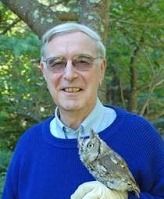
A native Californian, Gerald W. McFarland received his B.A. from the University of California, Berkeley and his doctorate in U.S. history from Columbia University. He taught at the University of Massachusetts Amherst for forty-four years, specializing, among other things, in the History of the American West. During that time he published four books in his field, including "A Scattered People: An American Family Moves West," cited by the Colonial Dames of America as one of the three best books in American history published in 1985. Since his retirement, he has written three novels in the Buenaventura Series. He and his wife life in rural Western Massachusetts.

